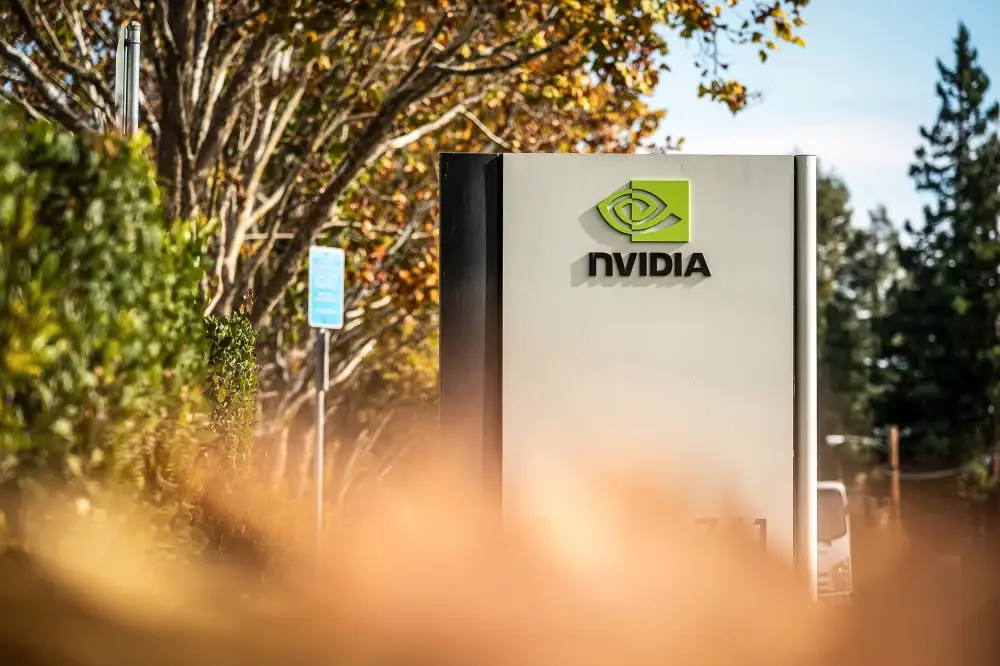Nvidia has found itself at the heart of a rapidly intensifying trade conflict between the United States and China, as Washington tightens restrictions on the export of advanced technology.
The chipmaker announced Tuesday it expects a financial hit of approximately $5.5 billion after the U.S. government imposed fresh export controls on its H20 artificial intelligence chips.
The H20 model was designed specifically to comply with previous U.S. export rules, allowing Nvidia to maintain business ties with China. However, new licensing requirements have upended that strategy.
Shares of Nvidia (NVDA) dropped 5% in early Wednesday trading following the announcement, extending losses from the premarket session. The move adds further strain to global markets already rattled by tariffs and trade tensions driven by the Trump administration.
Amid the growing uncertainty, the World Trade Organization on Wednesday said global trade prospects had “deteriorated sharply” due to the wave of tariffs and ongoing unpredictability in trade policies.
The H20 chip, launched last year, was a scaled-back version of Nvidia’s powerful H100 chip, already banned from sale to China. Despite its limited computing capacity, the H20 was instrumental in Chinese firm DeepSeek’s development of its ChatGPT-style reasoning model, R1, which stunned the global tech community by achieving advanced AI capabilities at a significantly lower cost than American alternatives. The development triggered a surge of AI activity in China.
Nvidia disclosed in a regulatory filing that it was informed by the U.S. government last week that H20 chip exports to China would now require a special license. China represented 13% of Nvidia’s total sales in the previous fiscal year.
The company said the anticipated $5.5 billion in charges, set to appear in its May 28 earnings report, relate to “inventory, purchase commitments, and related reserves” tied to the H20 product line.
Despite the financial blow being relatively modest in the context of Nvidia’s broader operations, some analysts view the decision as geopolitically significant.
“This disclosure is a clear sign that Nvidia now has massive restrictions and hurdles in selling to China as the Trump Administration knows there is one chip and company fueling the AI Revolution and it’s Nvidia,” said Dan Ives, global head of technology research at Wedbush Securities, in a research note Tuesday. He described the export ban as a “strategic blow” to Nvidia’s long-term plans in China.
The U.S. Commerce Department confirmed on Tuesday that new licensing rules apply not only to Nvidia’s H20 chips but also to similar products from AMD, such as its MI308. These rules aim to prevent U.S. technology from aiding China’s military and AI ambitions.
“The Commerce Department is committed to acting on the President’s directive to safeguard our national and economic security,” a department spokesperson told reporters.
The licensing requirements are indefinite, according to Nvidia’s filing, though the process for obtaining such licenses remains unclear. Nvidia declined to comment further beyond what was disclosed in its filing.
The move, while anticipated by many, comes after mounting pressure from U.S. lawmakers. The success of DeepSeek’s R1 model has prompted bipartisan calls for tighter controls on AI chip exports.
In the months since R1’s launch, China has seen a rapid acceleration in AI development. Investor enthusiasm has surged, sparking rallies across China and Hong Kong’s tech sectors.
Nvidia’s H20 chips had become a go-to choice for Chinese AI developers, including heavyweights like DeepSeek and Huawei. While local alternatives such as Huawei and chipmaker Cambroon have emerged, analysts say they still lag Nvidia in terms of performance and software capabilities.
“The performance gap between Chinese chips and Nvidia’s is expected to widen,” said Brady Wang, associate director at Counterpoint Research, citing Nvidia’s “superior ecosystem and manufacturing advantages.” However, Wang acknowledged DeepSeek’s achievements show that “high-performing AI models can be trained with lower-spec hardware.”
As the U.S. clamps down on advanced AI chip exports, Nvidia’s role in the ongoing tech war highlights the growing challenges facing global firms caught between national interests and market opportunities.






